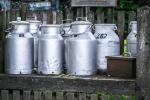H2020 RUBIZMO Project: Replicable business models for modern rural economies
- Type Project
- Status Filled
- Execution 2018 -2021
- Assigned Budget 3.928.852,04 €
- Scope Europeo
- Main source of financing Horizon 2020
- Project website Proyecto RUBIZMO
Rural bioeconomy entrepreneurs struggle to access financing, skilled employees, and innovation support networks. The EU-funded RUBIZMO project will identify innovative business models (developed or identified in projects under the Seventh Framework Programme, Horizon 2020, Interreg, Central European Union, etc.) with significant potential to support modernization and sustainable growth in rural economies.
They will also be relevant to the food sector, bio-based value chains, and ecosystem services. The selection and ranking of models will be used to create a virtual library of business cases, draft guidelines for public authorities and policymakers, create a cooperation toolkit for efficient networking, and create a transformation support tool for novice entrepreneurs.
Improving tools for entrepreneurship in rural areas. The project has selected more than 400 relevant past European projects and analyzed the results to produce four tailor-made tools for entrepreneurship in rural areas, comprising: a) a database of 47 business cases and 9 innovative business strategies; b) a transformation and support tool that allows entrepreneurs to adapt their business model to their specific needs; c) a business environment tool that allows stakeholders to support rural entrepreneurs by sharing recommendations and offering a comprehensive framework; and d) a set of tools to support cooperation, clustering, and networking. Improving knowledge of emerging business models in rural areas. RUBIZMO has identified, analyzed, and compared 13 successful business models to understand their potential for development and replication in other areas.
Lessons from the business models have been included in the Entrepreneur Transformation and Support Tool and have informed recommendations for policymakers. Five scientific articles promoted the results, which were also presented at ten international conferences. In the first reporting period, one scientific article was published, and interim project results were presented at eight conferences. In the second reporting period, the results were presented at nineteen conferences and events, and three additional scientific documents were produced. Increasing the potential for rural economic diversification, added value, and job creation in diverse rural areas. RUBIZMO created an open-access training material repository containing training modules in many different languages and various formats (video, animated videos, lectures, PowerPoints, etc.) for future entrepreneurs, established a European Academy for Rural Development, and organized dissemination events across Europe. An estimated 1,110 agricultural and related science students, 420 companies, and 1,286 innovation support stakeholders learned directly about the benefits of innovative business models through capacity building and dissemination activities.
Fifty-six training events were organized across Europe, training over 2,800 people. Twenty-one café talks were held weekly for seven months, and seven virtual visits were organized in ten different locations, replacing the initially planned virtual study visits. This project has made rural economies and societies more resilient to global changes. The project's exploitation activities have ensured a long-term impact, and project tools supported the creation of new rural networks and collaboration platforms that will build on local strengths. Forty-seven companies were trained to help them develop their own business plans based on some of the resilient business models identified by the project, ensuring a real and direct impact on rural economies. Thirteen companies began the realization/implementation phase of new business models during the project's lifetime.
Improving the provision of ecosystem services derived from innovative forms of valorization. Within the virtual library, a total of 15 innovative business cases for improving the provision of ecosystem services were presented, with a particular focus on the creation of new value chains and digitalization. Regarding the number of business models, eight were highlighted in the virtual library. Two inspiring videos presenting a specific business case based on ecosystem services were produced and disseminated throughout Europe, with subtitles in six different languages.
Rural areas cover more than 50% of Europe's land area and are home to more than 20% of its population. They play an important role in the European economy, particularly in the agricultural sector, which supports millions of jobs. However, rural areas face numerous challenges. Global competition, automation, changing markets, and environmental challenges are impacting rural activities. RUBIZMO has generated jobs and growth in highly diverse rural areas by stimulating the large-scale deployment of successful, localized, and innovative business models in the food sector, bio-based value chains, and ecosystem services. This deployment has fostered the modernization and sustainable growth of rural economies, while providing significant potential to create added value, social cohesion, and resilience, and contribute to a more sustainable use of human and natural resources. RUBIZMO believes that a new set of dynamics means that rural economies are ripe for change.
New communication technologies to support collaboration, shifts in value chains, and the growing recognition of biodiversity and climate change mitigation present significant opportunities as well as challenges. Experts from across Europe have examined how "hotspots" for business success can be nurtured in this environment and ultimately recreated elsewhere. The rural economy has great potential to pioneer deep-rooted sustainability and social return on investment in business models. In this regard, RUBIZMO has highlighted the best business models and initiatives that create value for the economy, the environment, and society alike. RUBIZMO has focused on three key elements to help make this happen: - Identifying and analyzing promising business models and fertile collaboration networks for scaling up and replication - Providing an easily accessible overview of these rural business innovation hotspots and practical support tools for entrepreneurs, local networks and policy makers to adopt them - Active coaching of entrepreneurs and peer training focused on creating the new collaboration patterns that the RUBIZMO evaluation has identified as key to improving business model competitiveness and sustainability.
RUBIZMO will identify business models with high potential to empower rural communities to take advantage of the opportunities arising from improved value chain optimization. It will directly support sustainable job creation and growth in rural economies, supporting a multi-stakeholder approach to shared value generation.
Ultimately, the project seeks to contribute to rural development in Europe by supporting the Europe 2020 Strategy for smart, sustainable, and inclusive growth, as well as regional and rural development policy. To this end, the project will identify innovative business models (developed or identified in existing projects under FP7, H2020, Interreg, Central Europe, etc.) with significant potential to support modernization and sustainable growth in rural economies, and relevant to the food sector, bio-based value chains, and ecosystem services.
Business models with the potential to contribute to the modernization and sustainable growth of rural economies will be selected, packaged, and categorized according to their nature, including technologies, services, business support structures, financing mechanisms, etc.; a Transformation Support Tool, to help individual entrepreneurs understand which business models best fit their situation and how to implement change. The project will then prepare for scale-up and replication across Europe in rural areas using real-life case studies, taking into account the complexity of value chain transfer.
Rural entrepreneurs who believe in the bioeconomy need a helping hand. Access to financing, skilled employees, and innovation support networks are just some of the challenges they face in a market dominated by large players. They also live in regions at a turning point brought on by global competition, automation, changing markets, environmental challenges, and even COVID-19. "Now is the time to rethink our approach to rural development and unleash a new dynamism and perspective," says Justin Casimir, project leader at the Research Institutes of Sweden (RISE).
Aware of the current situation in European rural regions, Casimir and his partners within the EU-funded RUBIZMO (Replicable business models for modern rural economies) project see an opportunity. So how do you find the light at the end of the tunnel? RUBIZMO's answer is simple: nurture a few successful pioneers to lead the way by example. "Many citizens, both in urban and rural areas, are thinking about starting their own business in rural areas. They want to get closer to nature and align with their values. RUBIZMO helps them take this step with more information and confidence, thanks to the Virtual Library: a tool that provides a snapshot of different types of successful businesses," explains Casimir. Tools for entrepreneurs and their followers. Easily accessible to anyone with basic computer skills, the Virtual Library essentially provides inspiration. We could mention, for example, Fiusis in Italy. In 2007, the company began construction of a facility that used local virgin timber to create sustainable heat and electricity. In another sector, Blue Lobster inspires with a new digital marketplace that allows local fishermen to sell their catch directly to their customers. The "Airbnb of the fishing industry," as Casimiro likes to call it. But the Virtual Library isn't the only tool created by RUBIZMO.
The team also developed a transformation support tool, which guides entrepreneurs in shaping their own business model. The tool highlights key obstacles to overcome and can be used directly by entrepreneurs, although it's best used with the support of a business advisor. We have two other tools for support agencies. The business environment guidelines will guide local, regional, and national public agencies or policymakers on how to align their local business environment with the requirements of different types of business models.
This tool is still under development and will be implemented in the form of participatory workshops. For example, it will provide guidance on how to increase the capacity to attract funding for innovative and emerging business models in rural areas,” Casimir adds. But what about the final tool? “It is the Cooperation Toolbox. It offers a comprehensive mapping of existing networks in food, bio-based, and ecosystem services value chains and provides guidance for developing existing networks and creating new ones.” Perhaps one of RUBIZMO’s key innovations lies in its new approach to rural regions, not just focused on agriculture, but examining three interrelated sectors: food, bio-based value chains, and ecosystem services. The RUBIZMO team continues to work hard to provide information, free access to resources, and training tools that will at least play a small role in the success of future rural entrepreneurs.
In the long term, Casimir hopes the project will inspire them through the Virtual Library's examples and, at the same time, involve business advisors, regions, and other stakeholders in supporting the development of innovative businesses in rural areas. Is this the beginning of a new kind of rural dynamism? Only time will tell.
RUBIZMO's impact has been achieved through a range of different activities such as coaching, teaching (entrepreneurs, students, and advisors), workshops, scientific publications, reports, conferences, national stakeholder panels, social media, YouTube videos, online study visits, and regular thematic presentations designated as RUBIZMO Café Talks.
An important source of impact, both actual and potential, lies in RUBIZMO's tools: the virtual library, the networking tool, the business environment tool, and the transformation support tool. RUBIZMO also hosts a training platform that includes multilingual training materials for the project's target groups. These tools help rural entrepreneurs and communities in multiple ways, such as inspiring, connecting, and analyzing the current situation and how to develop their business model. RUBIZMO concluded that there are many policy changes that could be introduced to improve the business environment in rural areas and thus make it easier for rural entrepreneurs to start successful businesses.
Some of the lessons learned included that;
- A good business model is important, but it does not guarantee success.
- Examples and context (such as those provided by the Virtual Library) provide grounds for discussion in order to bring abstract business models to life.
- Business model innovation is sector and location specific.
- Rural communities and businesses in Europe are highly diverse and complex, and so must their support structures.
- Digitalization is a very powerful tool for sharing experiences between rural areas, and the experiences of rural areas in different parts of Europe have much to learn from each other.
- RISE RESEARCH INSTITUTES OF SWEDEN AB (RISE)







